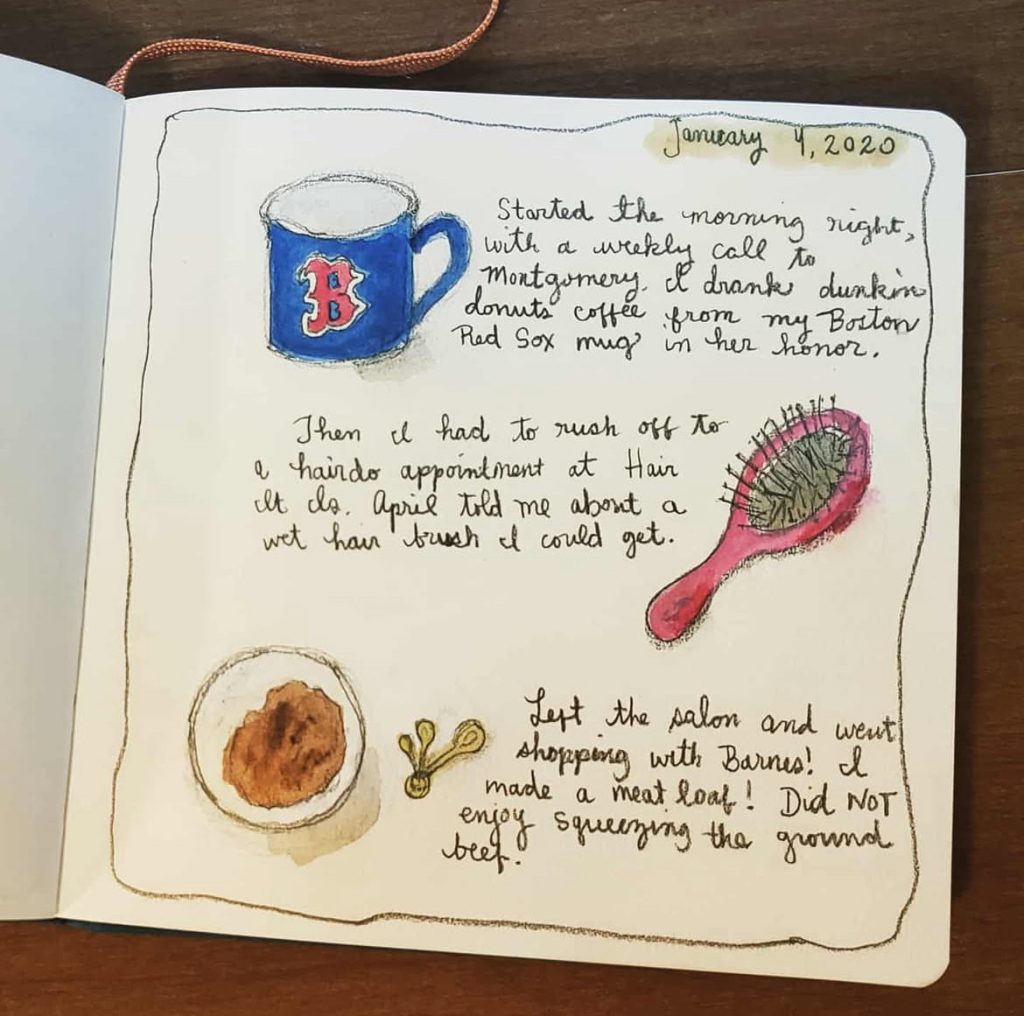
A few things that I wrote about on a day before the pandemic arrived.
As someone who suffers from social anxiety, I have to approach social situations with a whole slew of tools that’ll help me navigate them. One of these is the piece of advice that one way to feel less nervous in a conversation is to ask the other person about themselves: it takes the focus off yourself, and you learn something. And it usually works because people like to talk about themselves. I know I do! This enjoyment manifested in the keeping of a blog, in the early 2000s, and in my habit of chronically oversharing on social media, in recent years. (As soon as I get over the horror of my own voice, I’ll be killing it at podcasting, I just know it!) And, ever since my early teen years, I’ve been keeping a written diary – though these days, I call it a journal. It’s more sophisticated.
With that in mind, it makes sense that the Power of Stories module was one that I really enjoyed. It was nice to take a look at some of the ways that libraries are promoting storytelling through initiatives like the Human Library, and via partnerships with StoryCorps. Because I love journaling so much, I wanted to see if any libraries were offering events surrounding that particular storytelling activity. I’m happy to report that I found a number of offerings in my search.
I even came across a 2023 blog post published by the Salina (KA) Public Library that did a deep dive into “The Creative Significance of Journaling and Scrapbooking”. Something that I really loved about this essay is how it took me back to something I’ve been thinking about a lot this semester: the importance of capturing the average person’s story as a piece of historical evidence. This quote gets at exactly that:
“… in a hundred or two hundred years, what will people have to remember us? Those of us who live in the twenty-first century have journals and letters from times past – what we historians call primary sources. It seems the only thing people would have to remember me by would be some Facebook posts or emails.” (para. 4)
Having said that, I don’t think that journals should just be locked away in an archives (even if it happens to be part of a very cool project). I absolutely love the idea of sharing them at events like the ones that the Salon of Shame hosts. The Salon puts on a series of live performances like the ones from Here:Say Storytelling, but at the Salons, people read from their cringiest old diaries and letters. I’ll bet a library could host this sort of event. Maybe in the evening as an adults-only sort of thing? It could be fun.
At any rate, I’m a believer in the importance of community-building, and I think that encouraging people to share everyday stories about their lives, or even just serving as a gathering place where people can share space while writing their stories down, is a great way to facilitate this.
And now: please enjoy this BONUS representation of one of my favorite books in emoji.
🤡🎈👧🏻👦🏾👦🏻👦🏻👦🏻👦🏻👦🏻

Terry, I was first struck by the photo of your journal. My mom does a lot of water color journaling and I love that you do it also. Your handwriting is gorgeous also.
Having a combination of both written word and painted art combine to make very powerful storytelling, bringing you back to a moment in time with both imagery and thought. And the retelling of journal entries at https://www.heresaystorytelling.com/ is amazing. I will have to check that out. 🙂
Thank you so much, @saraschwan!